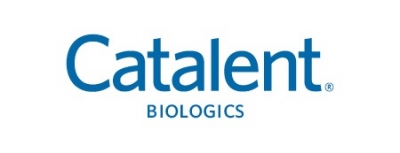How can new technology platforms optimize Antibody Drug Conjugate Design?
With most current cancer treatments on the market having a wide range of often unpleasant peripheral effects on the patient, in large part due to the non specific targeting of both healthy and cancerous cells, it comes as no surprise that antibody–drug conjugates (ADCs) have received significant attention due to their impact within the cancer drug development field.
The efficacy of these compounds is attributed to the targeted tumor delivery of cytotoxic payloads. The targeting precision of antibodies enables direct payload delivery to cancer cells where the conjugate is internaliszed and causes cell death. This targeted treatment can lead not only to more effective treatment but can also lead to far less negative effects on the patient, not only extending patient life but also significantly improving the quality of life of the patient during treatment, unlike non targeted treatment options which whilst extending patient life spans can often detrimentally effect the quality of life of the patient during an already testing period.
However one of the current challenges with existing ADCs is the difficulty in creating conjugates with a uniform drug to antibody ratio and consistent payload placement on the antibody, both aspects which are paramount in creating consistent and predictable therapies.
In this session, Dr. David Rabuka, Global Head R&D Chemical Biology, will present how advanced technology platforms can enhance many biotherapeutics including ADCs. The presentation will discuss the most recent data in the technology's development. This will include PK and toxicology data from primate studies illustrating how SMARTag™ technology allows for development of ADCs with favorable stability and safety profiles compared to alternative ADC technologies. Dr. Rabuka will also discuss the evolution of SMARTag™ linker technology, and how the choice of linker can alter the efficacy and stability of an ADC in various models.
Register today to discover how SMARTag™ technology enables the development of improved Antibody Drug Conjugates, providing advantages over existing technologies with focus areas such as:
• Programmable Site Specific Drug Placement
• Proprietary Cytotoxin-linkers and Conjugation Chemistry
• Commercial access to payloads through unique chemistry
• Enhanced potency and stability and efficacy
• Efficient and Scalable Process
Catalent is your strategic partner for biologic drug development success. We create smart, tailored solutions with our novel SMARTag™ ADC Technology, our superior GPEx® cell line expression system ,expanded biomanufacturing capabilities and integrated development and analytical services to help you get more products and better treatments to clinic faster.
Register today and learn how Catalent can help you Create More Efficacious Antibody Drug Conjugates.
Presented by

Dr. David Rabuka, Ph.D.,
Head of Global R&D, Chemical Biology
Dr. Rabuka assumed the role of Catalent Pharma Solutions' Global Head of R&D Chemical Biology in October 2014, following Catalent's acquisition of Redwood Bioscience Inc., where he had previously acted as President and Chief Scientific Officer.
He received a Ph.D. in Chemistry at the University of California, Berkeley, as a Chevron Fellow in the lab of Professor Carolyn Bertozzi. His research included developing and applying Redwood's platform technology to cell surface modifications. Prior to joining Professor Bertozzi's lab, Dr. Rabuka worked at the Burnham Institute, synthesizing complex glycans, followed by Optimer Pharmaceuticals, where he was an early employee, focused on the development of glycan and macrolide based antibiotics.
He graduated with a double honors B.S. in Chemistry and Biochemistry from the University of Saskatchewan where he received the Dean's Science Award and holds an M.S. in Chemistry from the University of Alberta. Dr. Rabuka is an author on over 30 major publications, as well as numerous book chapters and patents.






